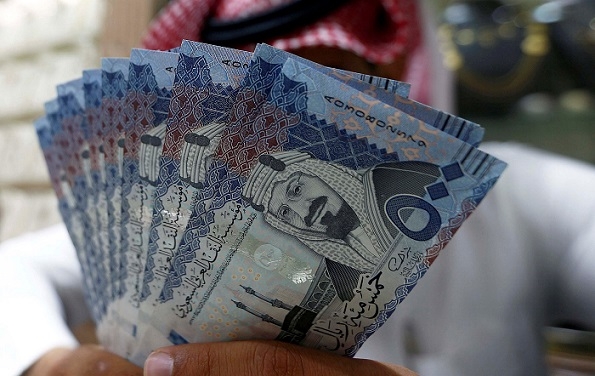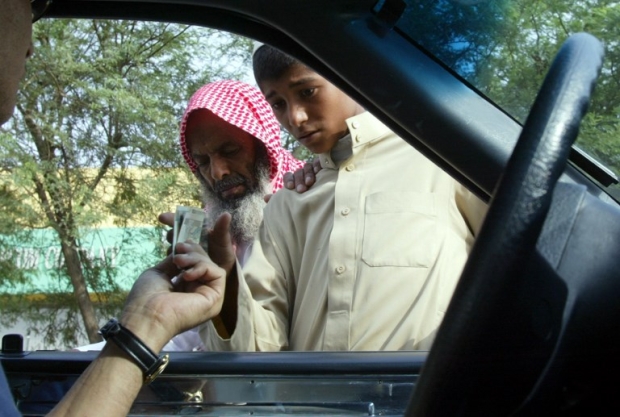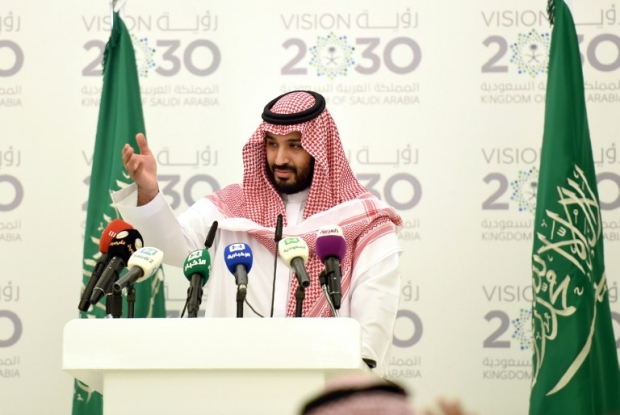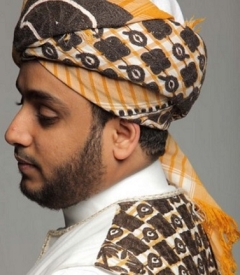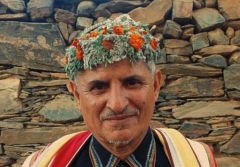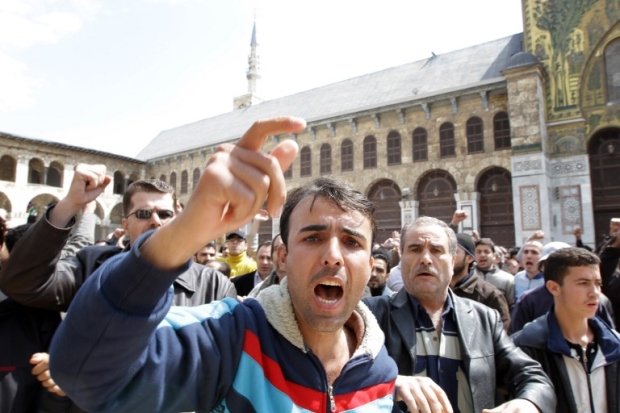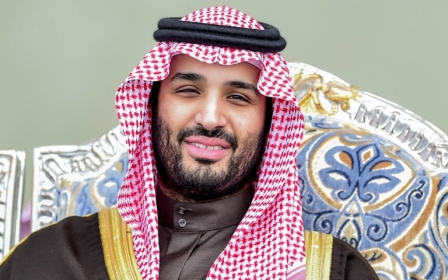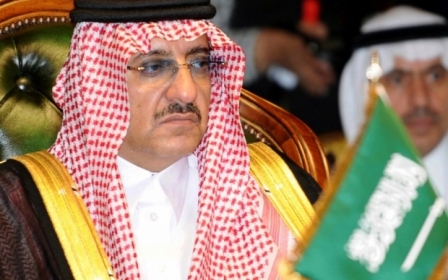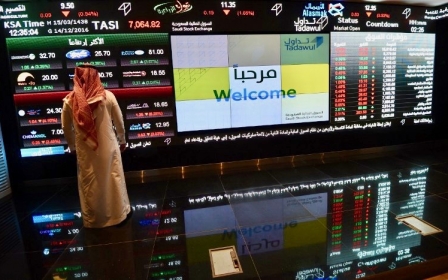Saudi Arabia: The coming civil war
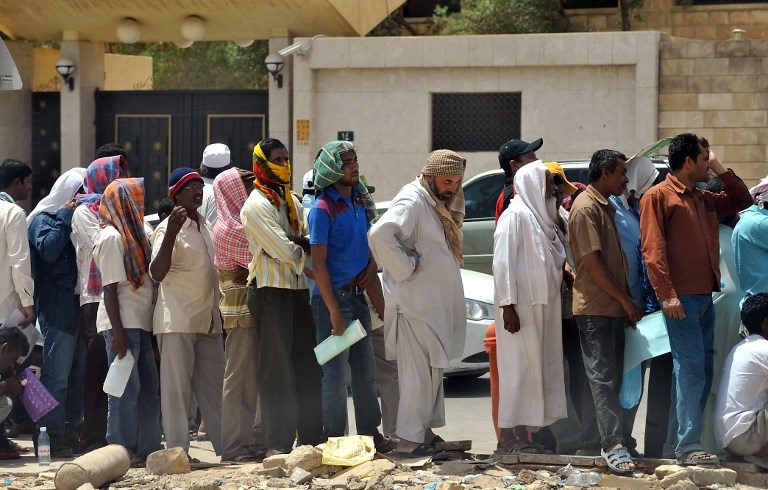
JEDDAH - The vibrant Saudi city and the country's economic hub. Well, not anymore. It feels a bit like a ghost city these days. Things don't look as glamorous and promising as they once were.
This is not a city-specific condition though. Businesses across the country are struggling to meet their financial obligations. These include their fixed and operational costs such as salaries, rents, and the ever-increasing government fees and requirements.
The labour market
The government sees the foreigners working in the Saudi labour market as a legitimate source of continuous extraction of income. According to a Banque Saudi Fransi report released in July and reported about in Saudi media, there are an estimated 11.7 million foreigners in Saudi Arabia, 7.4 million of whom work and the remaining 4.3 millions who are companions.
Instead of paying these new fees, in the weeks after the law was introduced, tens of thousands of foreign workers have fled the country
On 1 July, authorities began collecting fees from companions when they renewed their ID cards, a residence permit renewed annually. Companions will now pay 100 riyals ($26.66) each month. By 2020, according to the bank, that figure will rise to 400 riyals ($106.66) and are expected to generate $20bn for public coffers.
It seems as if the policymakers in decision circles fail to see beyond the face value of their initiatives. Yes, these new fees may raise direct revenues, but they will also destroy the country's entrepreneurship and small and medium-sized businesses. These enterprises operate on very limited budgets and resources. So instead of supporting this already struggling sector, these new regulations will only squeeze them further.
For that reason, many employers have responded by transferring these newly adopted fees onto their employees and labourers. Consequently, the vast majority of foreign workers now have to pay these newly introduced fees from their own earnings. Instead of paying, in the weeks after the law was introduced, tens of thousands have fled the country, and more will follow.
Remember: all this is happening in an economy that is already shrinking.
Saudi purchasing power
These mounting, excessive pressures on the small and medium-sized businesses will lead many of them to go bust at a time when Saudis' purchasing power is already at its lowest in decades and worsening.
In a 2016 report, the Jeddah-based National Commerical Bank stated that in February 2015, "cash withdrawals declined by 13.3 percent [year on year], point of sale transaction value retreated by 9.0 percent annually, the largest decline since 2009".
They added: “We do believe that lower disposable income from the hikes in energy and water prices in addition to the negative wealth effects from the back-to-back annual declines in Tadawul [Saudi Stock Exchange] will weaken consumption expenditure...”
The report also said that total deposits in the Saudi banking system in 2015 grew by 1.9 percent, "the weakest since the Gulf war".
"Saudi banks primarily rely on deposits to expand their balance sheets by extending credit lines to the private and public sectors. Consequently, total claims of the banking system, including [treasury] bills and government bonds, decelerated to 8.9 percent [year on year] for 2015," the report states.
Note that this report was published in 2016. Most of the surge in the prices of water and energy and the new government fees had not taken effect by then. But when their impact starts to be felt this year and early into next year, Saudi medium and small businesses - which make up almost 90 percent of all business enterprises in the kingdom - will likely be further devastated.
So besides the psychological and financial shocks of the severe and sudden reverse growth, now even more families will slip into poverty as a result of mass unemployment.
The government's spending behaviour
The public in Saudi Arabia no longer seems to perceive the government as part of the solution. Instead, they feel a sense of betrayal by their government. The kingdom's sudden, intensive and very committed rush to drain the economy is ruining its legitimacy. The Saudi government is facing a serious credibility crisis that will need significant work in the coming months and years to overcome.
Public anger is mounting and no one really knows when it will reach a tipping point
The unpopularity and widespread rejection of the 2030 Vision - the economic reform programme introduced by Mohammed bin Salman last year - is a case in point. People are waking up to a harsh, unexpected reality and are astonished to find that their government - which was supposed to be looking after their interests - is actually behaving in a rather strange and irresponsible way right in the middle of an economic crisis and a war of attrition in Yemen.
Public anger is mounting and no one really knows when it will reach a tipping point. Increasingly fed up with the government's spending behaviour, the public demands that the government fund badly needed national initiatives in regard to health, housing, and job creation.
Internal chaos
In the midst of all the mess, Saudi leaders continue to behave like conquerors in their own nation. They always pride themselves on taking control of the kingdom by sword (al-sawf al-amlah).
For example, if any Saudi citizen is found guilty of sympathising with the position of the state of Qatar in the recent diplomatic conflict, they could face a prison sentence of up to 15 years and up to half a million dollars in fines. What kind of regime in its right mind would even consider such political expression or solidarity a crime, let alone punish it so harshly?
Obviously, the law has generated a wave of mockery in social media platforms. But the point here is that the government is out of touch with reality and fails to sense how frustrated the people are with its attitudes and behaviours.
Moreover, the government has marginalised the local sub-cultures of every region in Saudi except that of Najd, where the ruling Al-Saud family come from. They abolished regional traditional dress and forced everyone to adopt the Najdi dress as the formal state uniform.
Imagine that: people cannot wear the regional traditional dress of, say, Aseer or Hijaz, but must wear the dress of the victorious family. This is how you treat a defeated enemy, not your own people.
The civil war scenario
Now for a civil war to emerge, it only needs a spark. I am not in the business of promoting its outbreak. To the contrary, I am writing this as a wake-up call.
So what's different here, some may ask? Economic hardship is not necessarily the determining factor that motivates people to stand up against their government. There are tens and possibly hundreds of countries around the world with worse economic situations than Saudi Arabia. Look at Sub-Saharan Africa, Latin America or many other places where coercive governments continue to exist regardless of bad economic realities.
It will only take a few thousands to take their anger to the streets and for the security forces to respond with aggression for things to slip into conflict
Well, it is slightly different in Saudi Arabia. Imagine if you have a family home, one that you were only able to buy after many long years of hard work. You have lived there for generations and, suddenly, you're about to lose it. How would that make you - or anyone else for that matter - feel?
Imagine the disappointment: your family slips into poverty and homelessness after having thought for decades that they had escaped it for good. For individuals, it would be easy to imagine that this could make some go insane or even become suicidal while others would have to start over from scratch.
For Saudi society as a whole, however, this can only mean one thing: revolution. When people lose everything they have, their only response is to hit the streets in frustration.
Aside from the sudden loss of wealth, Saudi Arabia’s other difference lies in the fact that the poor in the kingdom, and largely the rest of the population, are concentrated in cities. As such, they do not suffer from the structural barriers to effective activism that the poor in other third-world countries face.
Another important factor is money in Saudi politics which has always been an instrument to extend influence and promote stability through internal spending on employment and construction contracts. The drying up of liquidity will, therefore, further destabilise in the kingdom in the near future.
The socio-economic factors are in place. Economic activity is retreating in size. The government's mistreatment of the population in terms identity rights and other liberties further escalates the drive towards a dead end. The compounding effect of all these factors coming together can only, overtime, mount to a revolution.
It will only take a few thousands to take their anger to the streets and for the security forces to respond with aggression for things to slip into what could be characterised as the initial phases of a civil war.
Think of Libya and Syria in this context. During the Arab Spring, the brutal dictatorships in the two countries responded with excessive force when protesters demanded regime change. This usually leads to disobedience among some of the security forces and, overtime, large factions defected. This is how the Free Syrian Army was created.
Once that happens, the country is open to outside interference. Bottom line: it is much more sensible for the Saudi government to act now and contain public anger before it bursts.
Policy implications
The only way out for the government is political openness. This is no longer an ethical choice, but increasingly a political survival strategy.
An open, transparent, effective and elected legislature is needed for the political distribution of responsibility. People, as voters, will have their share of responsibility and so will their representatives in the formation and outcome of policies. This should ease some of the internal pressures and tensions that the Saudi government faces today.
Saudi Arabia is at a defining phase of its history. It can either modernise and survive or resist and fade
Moreover, the government should allow free expression. It is not only a human right, but also a human need. Psychologically, people in all contexts need to be able to freely speak their minds and naturally feel relieved when they do. It makes them feel relevant and valued when they can have their say in matters of public concern. It would have the added benefit of giving the public a new and positive impression their government is finally busy with more important issues than worrying about policing their mouths.
All in all, Saudi Arabia is at a defining phase of its history. It can either modernise and survive or resist and fade. Economic modernisation is unattainable in the absence of public scrutiny and accountability because, in the shadows, the motives for corruption and mismanagement override public interest.
In times like these, when the country's finances are overstretched, greater public inclusion in the decision-making process is no longer a luxury, but a necessity if leaders want to contain public anger and seize an opportunity.
Socioeconomic factors fuel hostility towards the government. The cure is good governance. Any delays in adopting this "cure" will only make the worst-case scenario the inevitable outcome.
- We are not sharing the identity of this author for his/her safety.
The views expressed in this article belong to the author and do not necessarily reflect the editorial policy of Middle East Eye.
Photo: Foreign workers wait in a long queue outside the Saudi immigration offices at the Al-Isha quarter of the Al-Khazan district, west of Riyadh, in May 2013 (AFP)
This article is available in French on Middle East Eye French edition.
New MEE newsletter: Jerusalem Dispatch
Sign up to get the latest insights and analysis on Israel-Palestine, alongside Turkey Unpacked and other MEE newsletters
Middle East Eye delivers independent and unrivalled coverage and analysis of the Middle East, North Africa and beyond. To learn more about republishing this content and the associated fees, please fill out this form. More about MEE can be found here.



